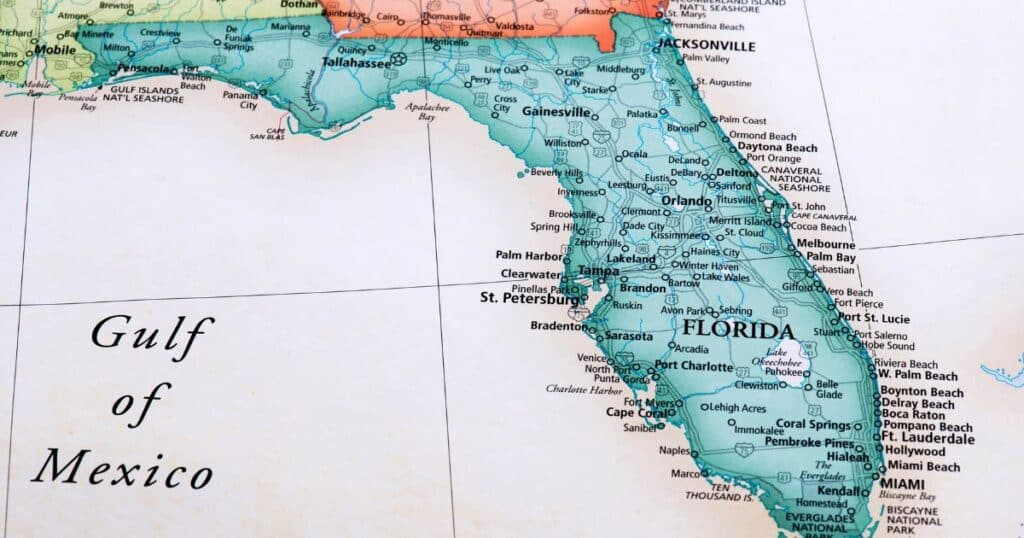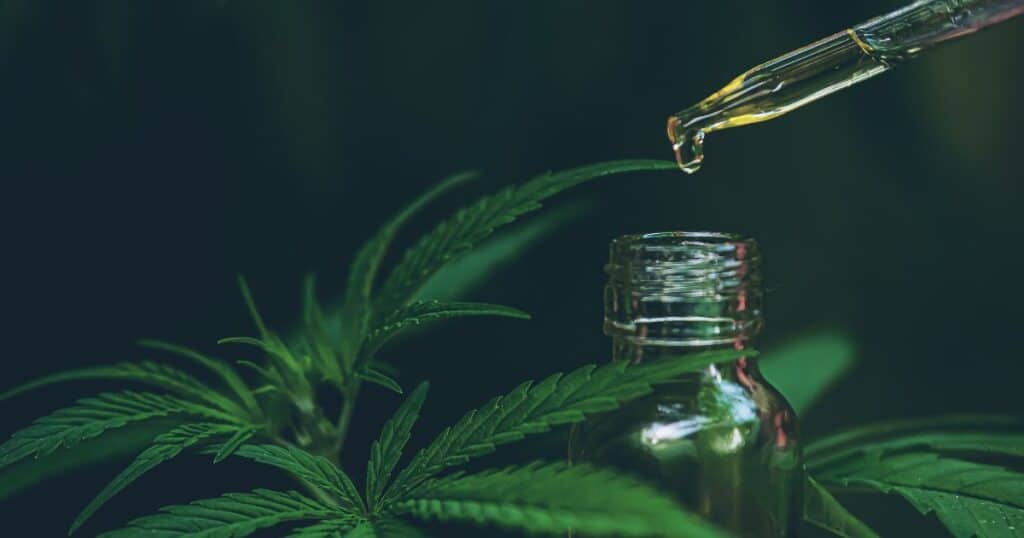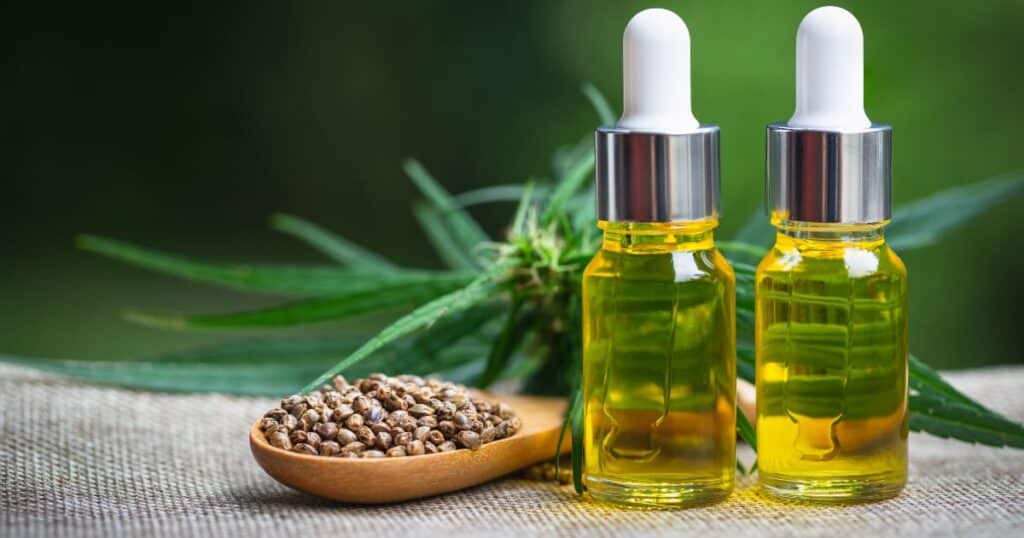The Florida Senate’s recent move in approving legislation to tighten regulations on hemp and, more significantly, to ban delta-8 THC products has caused some worry and uncertainty in the state’s hemp industry.
The bill, SB 1698, marks a pivotal moment in Florida’s approach to hemp-derived products and alternative wellness treatments. What does the future hold for Florida’s hemp entrepreneurs in the aftermath of this legislative action, and how will it shape the broader conversation around cannabis regulation and public health?
The implications of SB 1698 could be far-reaching, with aspects touching on public health, consumer access to hemp-derived products, and the economic landscape for those within the industry. The debate surrounding the passage of this bill highlights the complexity of policy-making in an environment where the cultural and commercial viability of cannabis stands at odds with traditional drug policy frameworks.

SB 1698 and Its Provisions
The bill, as it stands, is a response to the proliferation of hemp-derived products within Florida. It aims to set clear regulations in what the state believes will protect the population from potentially harmful substances while also preventing minors’ inadvertent consumption of products. To achieve these ends, SB 1698 incorporates several key provisions:
- Delta-8 and Other THC Derivatives – One of the most debated shifts in policy is the explicit ban on delta-8 THC, a popular product in the Florida hemp market. Per the bill text, it prohibits “delta-8-tetrahydrocannabinol, delta-10 tetrahydrocannabinol, hexahydrocannabinol, tetrahydrocannabinol acetate, tetrahydrocannabiphorol, and tetrahydrocannabivarin.”
- THC Concentration Limits – The legislation sets forth strict limits on the level of THC in hemp products. Each serving must contain less than 2 milligrams of THC, and each package must not exceed 10 milligrams in total THC content.
- Marketing and Packaging Restrictions – Recognizing the need to prevent child access and accidental consumption, the bill outlines stringent guidelines for the packaging and marketing of hemp products. Products “attractive to children” are those designed or packaged in a way that appeals to children, resembling toys, candies, or popular food products. This includes colorful additives, familiar shapes, or promotional characters that could be mistaken for well-known brands, especially by kids.
- Law Enforcement Appropriations – An additional facet of the bill involves the allocation of $2 million to the Florida Department of Law Enforcement for the procurement of equipment that will facilitate the identification and control of illicit substances that may be encountered during the course of duty, says Sen. Colleen Burton, the bill’s sponsor via the Florida Phoenix
- Date of Initiation – If passed by the House and then signed by Governor DeSantis, SB 1698 would go into effect July 1st, 2024.
“When we passed the hemp program, it was not in anticipation of highly intoxicated, sometimes psychoactive substances being ingested by Floridians,” said Sen. Burton on the Senate floor, per the Florida Phoenix, “The concerns we have had over the potential misuses of this product I believe has exceeded our expectations. So that’s why we have this bill today to continue the protections that we started last session.”
While these measures are, by design from the state, aimed at what they believe are safeguarding Floridians, they underscore the broader implications of legislative intervention in state markets. The specifics of this bill and its outcomes are likely to set a precedent for states grappling with the integration of hemp and cannabis-related products into their economies.
The Impact on Consumers and the Industry
For those within the hemp industry, the passage of SB 1698 represents a seismic shift that could fundamentally alter the business landscape. Entrepreneurs, retailers, and cultivators are facing the prospect of significant losses as products that were once legal and profitable are now prohibited. The need to quickly reimagine business models and adapt to these new restrictions could be pressing for many.
On the consumer side, the decrease in the availability of specific hemp products signifies a limitation in choices and raises concerns about the state’s responsiveness to the rising demand for health alternatives. Notably, Delta-8 THC has garnered a devoted following among those seeking relief from various conditions due to its unique psychoactive characteristics.
By prohibiting this compound, Florida is clearly articulating its belief and stance on what it views as safe and acceptable consumer choices. Consumers who previously relied on these now banned products as medicine may now be left in a lurch, potentially driving them towards the illicit market to obtain their medication.
Balancing Protection and Patient Access
One of the most significant narratives echoing from the halls of Florida’s legislature is the inherent tension between protecting the public and affording individuals the freedom to manage their health as they see fit.
SB 1698 could spark discussions about the role of government in dictating personal wellness practices. It challenges us to reevaluate the extent to which regulatory measures should impinge upon the decisions of medical marijuana patients, naturopathic adherents, and those who simply seek wellness through non-pharmaceutical means.
The bill as it stands surely won’t be a hit with everyone, especially those whose jobs and health routines will take a hit. The ongoing debate shows we need a smart way to protect consumers without cutting off access to helpful stuff. Let’s aim for rules that can change with the times and care about people, all while encouraging new ideas in healthcare.

In closing, the Florida Senate’s approval of SB 1698 signals a turning point in the state’s treatment of hemp and related products. As the bill progresses through the legislative process, Floridians are challenged to grapple with the complex intersection of personal choice, health management, and the mandate to protect the public from harm.
In order for this legislation to take effect, it must first pass the House, followed by the need for the governor’s signature. If these steps are successful, the bill will go into effect on July 1st, 2024.
In the months ahead, the implementation of this legislation will offer an illuminating case study for states nationwide as they, too, confront the regulatory paradoxes of a maturing cannabis industry. The narrative unfolding in Florida is not just a regional one but a testament to the ever-evolving dialogue between policy, free enterprise, and public health in our modern era.
Most Popular News Posts
- With Deep Roots in Cali’s Cannabis Culture, Circle Labs of Marin County Delivers High Grade Hemp Derived CBD
- Nationwide Decline of THC Levels in Legal Weed Reveals a Tsunami of Boof on the Horizon
- How Meme Culture Has Helped Shape Cannabis Culture in California & Beyond
- The Great California Cannabis Tax Scam Revealed





